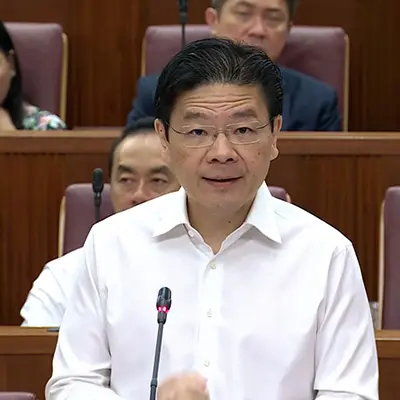The energy transition is an opportunity for Singapore to contribute to the world’s progress towards a low-carbon economy. The economy of the future relies on the energy system of the future, including infrastructure for solar and wind power, biofuels, hydrogen and carbon capture and storage. It also requires governmental regulations and policies to ensure consumers and companies adopt low-carbon technologies and fuels.
By collaborating even more closely and effectively, the Government and industry can thrive through the energy transition together.
One example is right here in Singapore, Shell’s only energy and chemicals park in Asia, located on Pulau Bukom. Shell built Singapore’s first oil storage installation and later the country’s first refinery in 1961 on Bukom. Today, Bukom is undergoing a transformation into an energy and chemicals park that will focus on producing low-carbon energy products like biofuels; incorporate circularity, such as waste plastics for feedstock; as well as provide renewable energy.
Ben van Beurden, CEO, Shell, one of the world’s largest energy companies. It has been in Singapore since 1891. Shell employs around 3,000 people in the Republic and supplies a broad range of energy products to customers across the region.
A regional decarbonisation ‘coordinator’
In the current macroeconomic and geopolitical context, supply chain drivers are evolving rapidly to include sustainability and resilience. This gives Singapore an opportunity to deepen its role in centralising the coordination and decarbonisation of Southeast Asia.
For instance, we see an important role for Singapore in supporting the training of both young and experienced engineers in low-carbon solutions such as district cooling or rooftop and floating solar installations. These skills are highly exportable and will support the region in successfully meeting its decarbonisation targets while mitigating energy supply and sovereignty risks.
Singapore can also help local businesses understand regional specificities such as local content requirements and investment restrictions. It can mitigate these complexities by helping shape the development of a cohesive regulatory framework at the regional level to support decarbonisation; this can be done through fiscal levers (carbon tax, cross-border carbon trading and accounting) and through the facilitation of low-carbon private sector investments.











